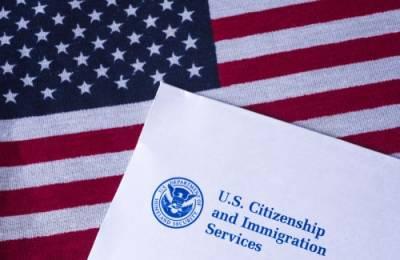Recent Blog Posts
Federal Judge’s Ruling Again Leaves Dreamers with Uncertain Future
 A recent decision by a Texas federal judge has dealt a blow to the Deferred Action for Childhood Arrivals (DACA) program in the United States, which currently provides protection for hundreds of thousands of immigrants. With the judge’s ruling that the program is illegal, the program will no longer be accepting new applicants, and the status of those who are currently in the program could also come into question.
A recent decision by a Texas federal judge has dealt a blow to the Deferred Action for Childhood Arrivals (DACA) program in the United States, which currently provides protection for hundreds of thousands of immigrants. With the judge’s ruling that the program is illegal, the program will no longer be accepting new applicants, and the status of those who are currently in the program could also come into question.
The DACA Program
In 2012, then-President Obama created the DACA program in order to provide a reprieve from deportation for undocumented immigrants who were brought to this country as children. Many of these Dreamers–a term frequently used to refer to those protected by DACA–are now adults. Since the program was created, more than 800,000 Dreamers have been accepted.
In 2018, then-President Donald Trump tried shutting down the program, but was barred from doing so by a number of legal actions. In 2020, the U.S. Supreme Court finally ruled that the Trump administration could not dissolve the program since it had failed to provide a sufficient justification to end the program.
How Would the U.S. Citizenship Act of 2021 Affect Immigration Laws?
 In January, the Biden administration announced plans for the U.S. Citizenship Act of 2021 with the goal of implementing significant immigration reform. The bill was formally introduced in both the House and the Senate in February and is currently working its way through the legislative process in both chambers. The bill contains hundreds of pages of legalese, as most congressional bills do. The goal of the bill is much more direct: “To provide an earned path to citizenship, to address the root causes of migration and responsibly manage the southern border, and to reform the immigrant visa system, and for other purposes.”
In January, the Biden administration announced plans for the U.S. Citizenship Act of 2021 with the goal of implementing significant immigration reform. The bill was formally introduced in both the House and the Senate in February and is currently working its way through the legislative process in both chambers. The bill contains hundreds of pages of legalese, as most congressional bills do. The goal of the bill is much more direct: “To provide an earned path to citizenship, to address the root causes of migration and responsibly manage the southern border, and to reform the immigrant visa system, and for other purposes.”
Breakdown of the Bill
If it passes, the new law would create the largest immigration legalization program in United States history. Some of the key highlights of the bill include the following:
-
Many undocumented immigrants would be eligible for lawful prospective immigrant (LPI) status if they were physically here in the U.S. on or before January 1, 2021. LPI status would allow them to stay in the country lawfully, be eligible for social security cards and work authorizations, and travel outside the U.S. and be readmitted as long as the time away does not exceed 180 days. They would also be able to renew their LPI status every six years; however, if the individual passes a national security and criminal background check and pays taxes, they would be eligible for lawful permanent residence (LPR) status in five years. It is estimated that this new rule would apply to about 11 million undocumented immigrants. Other immigrants who would also be eligible for LPI status are those who worked during the COVID-19 pandemic at jobs that are deemed “essential critical labor or services,” temporary protected status (TPR) recipients, and temporary agricultural workers classified as H-2A.
DHS Announces No More Routine ICE Arrests at Courthouses
 President Biden has announced that his administration will be limiting the number of immigration arrests that take place at courthouses. According to the new policy, Immigration and Customs Enforcement (ICE) agents will no longer have the authorization to carry out routine arrests at courthouses.
President Biden has announced that his administration will be limiting the number of immigration arrests that take place at courthouses. According to the new policy, Immigration and Customs Enforcement (ICE) agents will no longer have the authorization to carry out routine arrests at courthouses.
ICE agents will still be able to arrest individuals in cases in which matters of national security are at risk or the individual poses a threat to public safety. They will also be able to arrest an individual who is the subject of an active pursuit or if there is suspicion the individual may destroy evidence.
Addressing Fears of Law Enforcement
The policy of immigration arrests at courthouses was put in place by the Trump administration and allowed ICE agents to make routine immigration arrests at federal, state, and local courthouses. The practice is believed to have caused many people to avoid cooperating with law enforcement or attending court hearings. Many undocumented immigrants were fearful of confronting domestic abusers or testifying at trials because they feared being arrested by ICE agents and then facing deportation charges.
Understanding the Registration Process for H-1B Visas
 With registration for H-1B visas approaching in March, it is important to understand eligibility requirements and the process for obtaining them. Under the Immigration and Nationality Act, the H-1B is a visa in the United States that allows U.S. employers to temporarily employ foreign workers in specialty occupations. Typically, these jobs require specialized knowledge and a Bachelor’s degree or equivalent work experience. The average duration is three years, but they can be extended to six years in some cases, after which the visa holder may need to reapply. Immigration laws limit the number of H-1B visas that are issued each year, so for those foreign nationals seeking an H-1B visa, it is important to properly complete the registration.
With registration for H-1B visas approaching in March, it is important to understand eligibility requirements and the process for obtaining them. Under the Immigration and Nationality Act, the H-1B is a visa in the United States that allows U.S. employers to temporarily employ foreign workers in specialty occupations. Typically, these jobs require specialized knowledge and a Bachelor’s degree or equivalent work experience. The average duration is three years, but they can be extended to six years in some cases, after which the visa holder may need to reapply. Immigration laws limit the number of H-1B visas that are issued each year, so for those foreign nationals seeking an H-1B visa, it is important to properly complete the registration.
Bodies of Work
The H-1B nonimmigrant classification applies to individuals who wish to perform duties in a specialty occupation, services of exceptional merit, the ability for a Department of Defense (DOD) research and development project, or services as a fashion model of distinguished merit or ability.
What Does the Full Reinstatement of DACA Mean to Immigrants?

A federal court recently ordered full reinstatement of the Deferred Action for Childhood Arrivals (DACA) program that was created under the Obama administration, which protects undocumented immigrants who are brought to the United States as children from deportation. This ruling reverses the decision of the outgoing Trump administration, and it will help many people, including a large number of Indian immigrants. President Trump’s administration tried ending DACA in 2017, but the U.S. Supreme Court blocked the attempt. DACA allows those individuals with unlawful presence in the United States after being brought to the country as children to defer deportation for two years and become eligible for a work permit in the United States. Often referred to as “Dreamers,” DACA recipients cannot have any felony or serious misdemeanor convictions on their records. In addition, it only applies to those who came to the United States before their 16th birthday and who have lived in the country continually since 2007.
How Will USCIS New Premium Processing Availability Impact Immigration?
 After being passed by Congress and signed by the President on October 1, 2020, a new law will make USCIS’s Premium Processing service more efficient for those who are going through the U.S. immigration system. Previously, employers and individuals could experience long and unpredictable processing times before receiving USCIS benefits. This expedited processing service allows an applicant to pay an additional fee and receive expedited processing of the petition within a designated timeline. Under the new legislation, USCIS will make Premium Processing available for almost all employment-based immigration and non-immigrant petitions, as well as petitions for their dependents, and petitions for an extension or change of visa status. Premium processing provides expedited processing for the Petition for Nonimmigrant Worker and the Immigrant Petition for Alien Worker. These forms guarantee processing in a period of 15 calendar days to immigrants who would like to use the service. If that time frame is not met for any reason, the USCIS will reimburse an individual for the cost of the premium processing service fee and proceed with expedited processing.
After being passed by Congress and signed by the President on October 1, 2020, a new law will make USCIS’s Premium Processing service more efficient for those who are going through the U.S. immigration system. Previously, employers and individuals could experience long and unpredictable processing times before receiving USCIS benefits. This expedited processing service allows an applicant to pay an additional fee and receive expedited processing of the petition within a designated timeline. Under the new legislation, USCIS will make Premium Processing available for almost all employment-based immigration and non-immigrant petitions, as well as petitions for their dependents, and petitions for an extension or change of visa status. Premium processing provides expedited processing for the Petition for Nonimmigrant Worker and the Immigrant Petition for Alien Worker. These forms guarantee processing in a period of 15 calendar days to immigrants who would like to use the service. If that time frame is not met for any reason, the USCIS will reimburse an individual for the cost of the premium processing service fee and proceed with expedited processing.
Can an Immigrant Facing Deportation Receive a Cancellation of Removal?
 The path to U.S. citizenship can be complicated for someone coming from another country, especially when a language barrier is involved. There are various legal steps that must be taken to ensure legal entry to the United States. The U.S. Citizenship and Immigration Services (USCIS) is part of the Department of Homeland Security (DHS) that oversees the country’s immigration and naturalization process. Obtaining lawful permanent resident (LPR) status means an immigrant will receive what is called a Green Card. This is an important step in the process of becoming a U.S. citizen through naturalization.
The path to U.S. citizenship can be complicated for someone coming from another country, especially when a language barrier is involved. There are various legal steps that must be taken to ensure legal entry to the United States. The U.S. Citizenship and Immigration Services (USCIS) is part of the Department of Homeland Security (DHS) that oversees the country’s immigration and naturalization process. Obtaining lawful permanent resident (LPR) status means an immigrant will receive what is called a Green Card. This is an important step in the process of becoming a U.S. citizen through naturalization.
Grounds for Deportation
The U.S. government has the right to remove an undocumented immigrant from the country under certain circumstances. A criminal conviction is one of the most common reasons that an individual would be deported. While not all crimes are grounds for deportation, violent offenses in addition to the smuggling of undocumented immigrants into the United States may warrant an immigrant to be removed. These grounds typically include aggravated felony convictions or more than one conviction for criminal offenses that carry a jail sentence of more than one year. It is important to note that a jail sentence does not have to be served to warrant deportation or removal.
Tips for Finding Employment as a U.S. Immigrant
 People across the globe dream of immigrating to the United States for a better life. In some cases, they may have family members who are already in the country and want to join them. For some, seeking asylum here offers freedom from persecution. In other scenarios, individuals may come to America specifically for employment reasons. Regardless of the reasons, once an immigrant lawfully enters this country, he or she will likely need to find a job to support himself or herself. If someone has a family, it may be even more critical to find work. Building a new life in a different country can be daunting, and trying to find a job may be especially difficult. Below is some practical advice for finding work once you complete the immigration process.
People across the globe dream of immigrating to the United States for a better life. In some cases, they may have family members who are already in the country and want to join them. For some, seeking asylum here offers freedom from persecution. In other scenarios, individuals may come to America specifically for employment reasons. Regardless of the reasons, once an immigrant lawfully enters this country, he or she will likely need to find a job to support himself or herself. If someone has a family, it may be even more critical to find work. Building a new life in a different country can be daunting, and trying to find a job may be especially difficult. Below is some practical advice for finding work once you complete the immigration process.
Understanding Your Work Options
If you want to work in the United States legally, you will need to gain official permission by obtaining a work visa. Through the United States Citizenship and Immigration Services (USCIS), the federal government offers various visas for different purposes. Some are for a temporary period of time, while others are permanent. Foreign nationals who wish to work in the United States for a short time would obtain non-immigrant visas. These documents are not necessarily intended to provide a path to permanent resident status or U.S. citizenship.
How Does the Federal CARES Act Affect Immigrants in the United States?
The worldwide pandemic of COVID-19 has changed the way we live in just a matter of months. Local governments have issued “stay at home” orders and non-essential businesses have been closed for an indefinite amount of time. Individuals across the globe are practicing social distancing in an effort to flatten the curve for the number of new cases. Recently, the U.S. federal government announced the Coronavirus Aid, Relief, and Economic Security (CARES) Act. The largest economic relief bill in U.S. history, the stimulus package will allocate $2.2 trillion in support to individuals and businesses affected by the economic plunge due to the virus. Those people who are in the midst of the U.S. immigration application process may be wondering how the CARES Act will affect their cases, especially in regards to the new Public Charge rule.
Public Charge Rule
 In response to the coronavirus crisis, USCIS recently announced that the Public Charge rule cannot restrict access to testing, screening, or treatment of communicable diseases, including COVID-19. A Public Charge is defined as an individual who cannot support themselves through employment, financial assets, or assistance from family and instead relies on government benefits. According to U.S. immigration law, an individual who is considered likely to become a public charge is “inadmissible.” This means that they can be denied a Green Card or visa to be admitted into the country. The new Public Charge rule expands the types of publicly funded programs that are used to assess if a person is likely to become a public charge in the future.
In response to the coronavirus crisis, USCIS recently announced that the Public Charge rule cannot restrict access to testing, screening, or treatment of communicable diseases, including COVID-19. A Public Charge is defined as an individual who cannot support themselves through employment, financial assets, or assistance from family and instead relies on government benefits. According to U.S. immigration law, an individual who is considered likely to become a public charge is “inadmissible.” This means that they can be denied a Green Card or visa to be admitted into the country. The new Public Charge rule expands the types of publicly funded programs that are used to assess if a person is likely to become a public charge in the future.
The New Public Charge Rule FAQs

When does the New Public Charge Rule take effect?
Adjustment of Status Applications filed on or after Monday, February 24, 2020 will be subject to the new rule.
Is this a new rule?
No, public charge determinations have been part of immigration law since 1882. However, this new rule is more restrictive than in the past and requires that a totality of the circumstances test be applied to make a prospective, forward-looking determination of whether Intending Immigrants are likely to become public charges at any time after admission to the United States.
Who is subject to the new rule?
All applicants for adjustment of status are subject to this New Rule except for the following:
-
Refugees
-
Asylees
-
U Visa Applicants
-
VAWA Applicants
-
Special immigrant juveniles



Contact Unzueta Law Group, P.C.
The use of the Internet or this form for communication with the firm or any individual member of the firm does not establish an attorney-client relationship. Confidential or time-sensitive information should not be sent through this form.
I have read and understand the Disclaimer and Privacy Policy.



